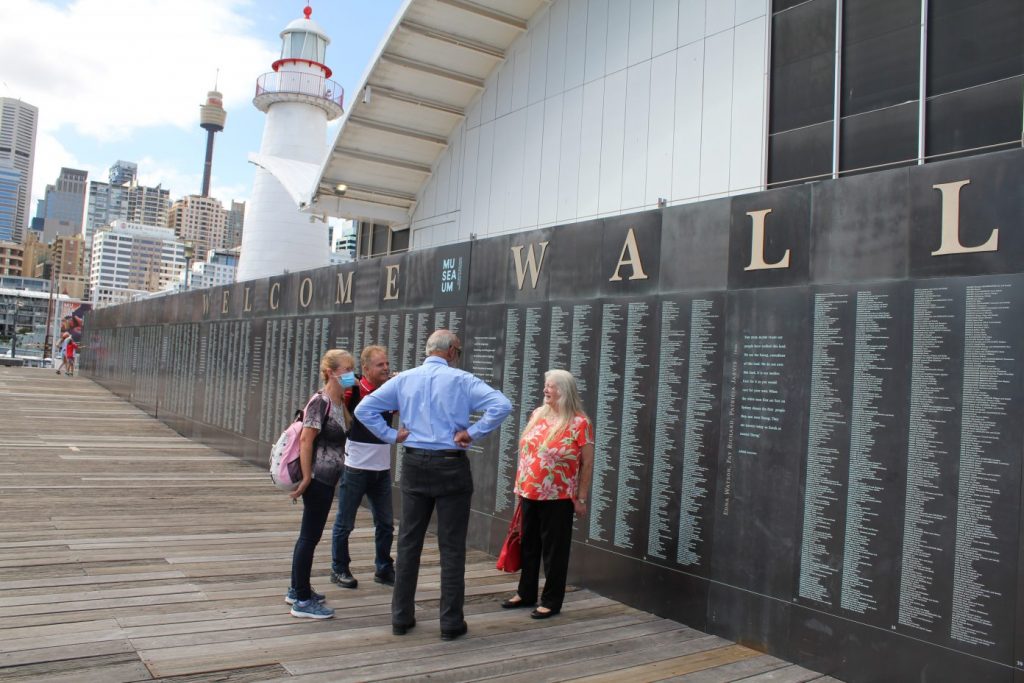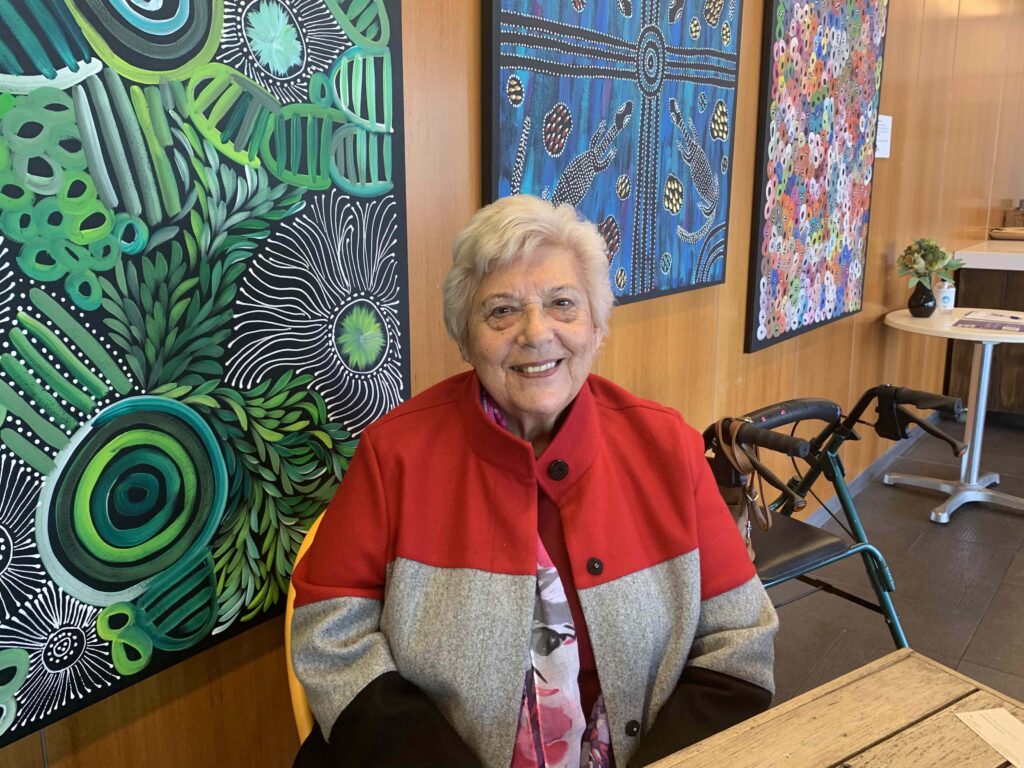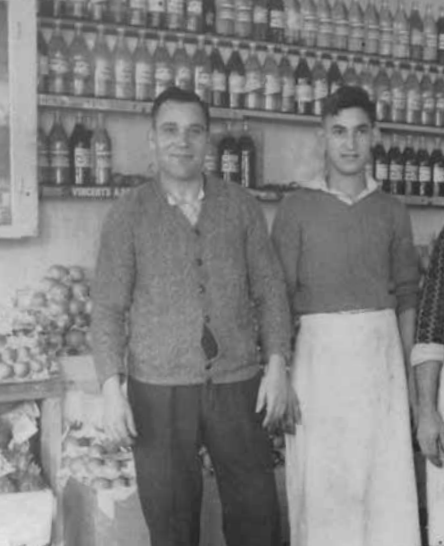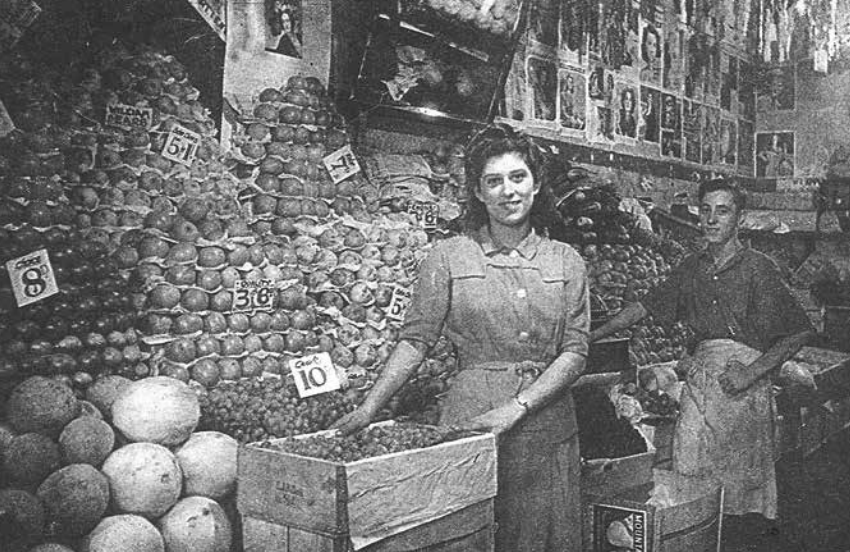By Peter Oglos.
Greek migrants have been thanked by politicians, past and present, many times throughout the course of history for helping build the foundations of Australia. Yet, while collective thanks is highly appreciated, there is nothing more special than an engraved and permanent record of the achievements of migrants.
The National Monument to Migration at the Australian National Maritime Museum provides this permanent tribute to Australia’s migration heritage.
READ MORE: Australian National Maritime Museum unveils 1,281 new names on Monument to Migration.
The Monument is home to over 30,000 names of migrants from countries such as Afghanistan, Gabon, Sierra Leone and Somalia. They are all proudly on display on a bronze-panelled wall that faces Sydney’s Darling Harbour and Pyrmont Bay.
Of these inscribed names, there are also 1,623 from Greece. This includes the parents of Bessie Dounis.

Family history that spans three centuries:
Bessie was one of the thousands of migrant children who decided to put her parents on the National Monument around five years ago.
Speaking to The Greek Herald, Bessie says that she felt it was important to share her parents’ achievements and story with the Maritime Museum.
“I hadn’t heard about it until I came to the Maritime Museum one day. I saw the Monument and I wanted to do it straight away,” Bessie says.
Bessie’s mother, Maria, and father, Con, were born before 1900 in Evia, from the Greek village of Raptei. Childhood sweethearts, the pair gave birth to two children before Con moved to Australia with his brother Stylianos and cousin, leaving his family behind in Greece.
READ MORE: Australian National Maritime Museum holds fundraiser for Greek Independence Bicentenary Project.
Con spent eight years working in the fishing industry off the Great Australian Bright before he saved enough money to bring his family over from Greece on 26 January 1936 – Australia Day.
Almost exactly nine months later, their daughter Bessie was born in Sydney. In quick succession, another four children followed: Nicholas in 1938, Michael in 1940, Steve in 1942 and George in 1944.

“It’s lucky she came out because only three years later, World War II had started,” Bessie says.
Bessie’s family settled in Kings Cross after sailing over from Greece, with her father running a fruit shop in the district.
Selling the shop in Kings Cross to buy another in Bondi Junction, Bessie explains that the Eastern Suburbs business didn’t last too long, with her family being “stuck in the Cross” for most of their lives.

“Dad sold the Kings Cross shop to an Italian. But it was then announced that the Italians had to be interned. So dad had bought the shop back from him,” Bessie says.
While Bessie’s father was renowned for his fruit shop in the Kings Cross area, her mother, Maria, was a beloved member of the community.
“If something went wrong on Palmer’s street or in the area, they would always call her to do her old fashioned remedies. She was loved by everyone,” Bessie explains.
While her parents collected many stories during their time in Australia, at 84 years old, Bessie has been blessed with many once-in-a-lifetime opportunities. One of these experiences includes her involvement in the Greek Orthodox Millennium Choir, which was the second choir in history to sing the millennium hymn in Greek at the Olympics, outside of Greece.
“I’ll tell you what. Magic,” she says.

“We had to go to Kingsford church and George Ellis was the conductor. We had the best seat in the whole house of the Olympic stadium for the opening ceremony.
“It’s funny because my parent’s names are on the wall, but my name is on the Olympic Park.”
Bessie’s father tragically died in April 1970 and was remembered by many of the migrant Greeks and local Kings Cross community as a “good man” who always helped other new arrivals to the country.
Maria lived to an impressive 96 years of age and is still fondly remembered by Bessie for her generous soul and loving nature.
“My mother was a truly special woman,” Bessie concludes.
To this day, Bessie continues to tell her parents’ stories, honouring their legacy as a piece of national history on the Monument.
Honour our Greek immigrants on Australia’s National Monument to Migration at the Australian National Maritime Museum. Register by 30 June 2022 to be part of the next ceremony in October. To register please visit this website or call 02 9298 3777.

